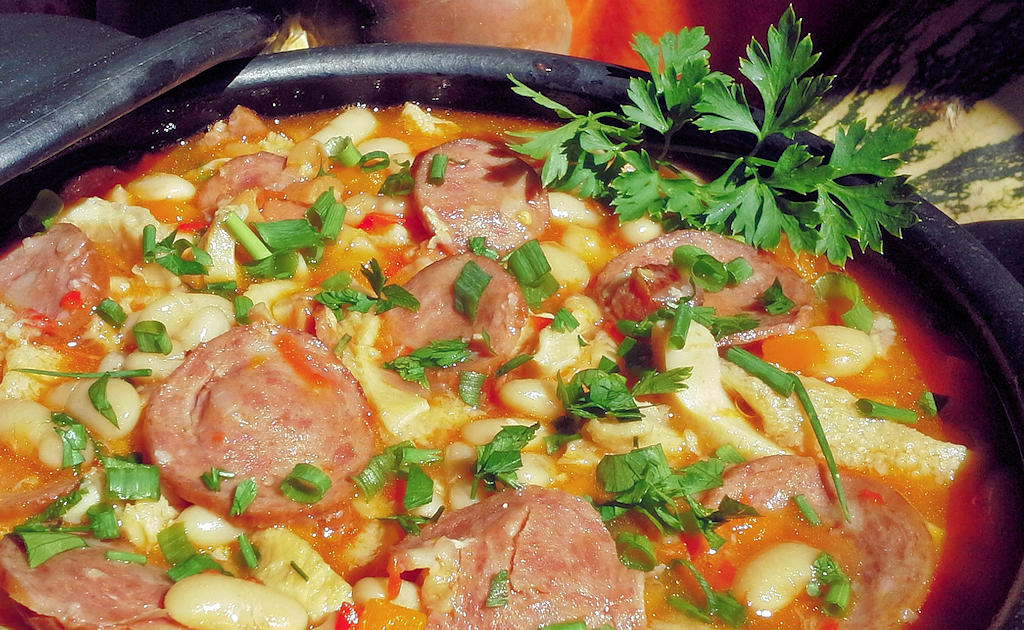Beyond the shores of Portugal, Dobrada found a second home in Brazil when Portuguese colonizers brought their cultural heritage to this vibrant South American nation. However, as the dish traversed the Atlantic, it encountered regional influences and embraced local variations. For instance, in the state of Bahia, dobradinha takes on a unique twist by incorporating black-eyed peas and palm oil. Meanwhile, in Minas Gerais, cornmeal and pork ribs lend their distinctive touch to this cherished stew. Whether savored as a main course or relished as a delectable snack at bustling bars and street stalls, dobrada has woven itself into the fabric of Brazilian cuisine, celebrating the diversity and culinary prowess of the country.
Beyond its status as a mere dish, Dobrada is a profound cultural expression that embodies the very essence of Portugal and Brazil. It serves as a culinary conduit, connecting history, geography, and the remarkable diversity of these two nations. From the resourcefulness of the Porto locals during the 15th century to the blending of flavors and techniques in Brazil, dobrada is a testament to the ability of humble ingredients to create something extraordinary.
Lisbon.vip Recommends
Tripas à Moda do Porto symbolizes the identity and soul of two nations intertwined in a shared gastronomic heritage. It is a testament to the resourcefulness and creativity of the Portuguese and Brazilian people, who have transformed simple ingredients into a harmonious symphony of flavors. This iconic dish is a tribute to the past, present, and future, showcasing the resilience and adaptability of culinary traditions over time.
So, whether you find yourself in the picturesque streets of Porto, captivated by the history and flavors of the tripeiros, or strolling through the vibrant markets of Brazil, tantalized by the local variations of dobrada, one thing is certain—this dish is a celebration of tradition, culture, and the unwavering spirit of two nations. So take a seat at the table, savor the aromas, and allow yourself to be transported on a culinary journey that pays homage to the rich tapestry of Portugal and Brazil. Dobrada awaits, inviting you to experience a taste that transcends borders and nourishes the soul.



